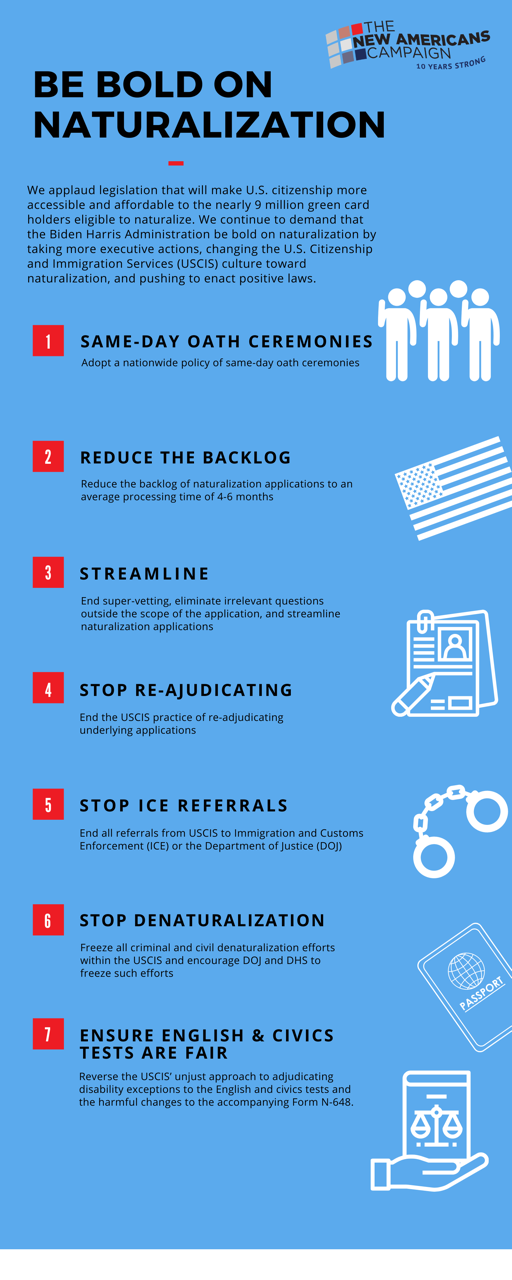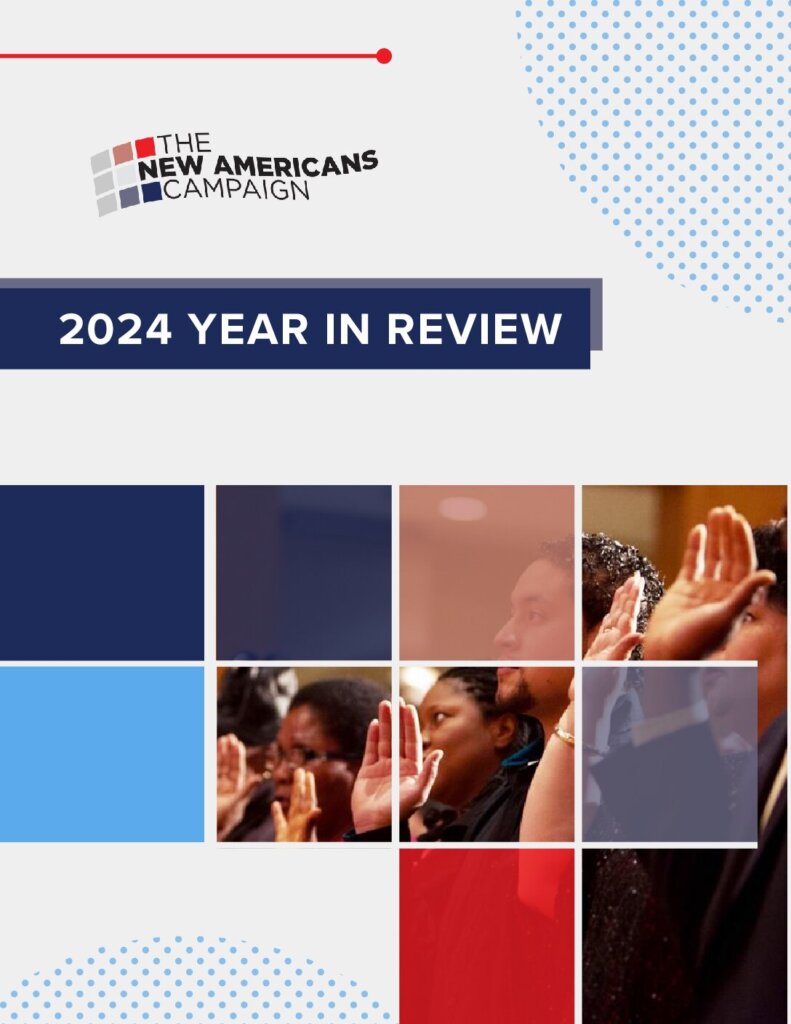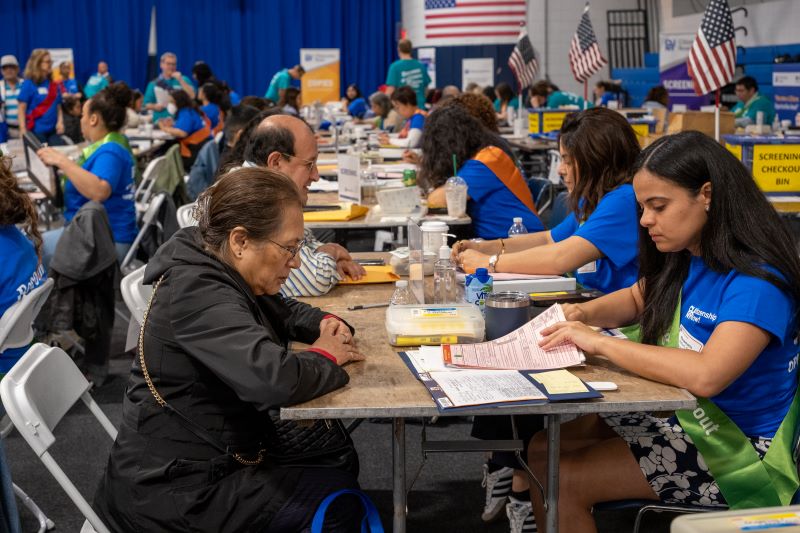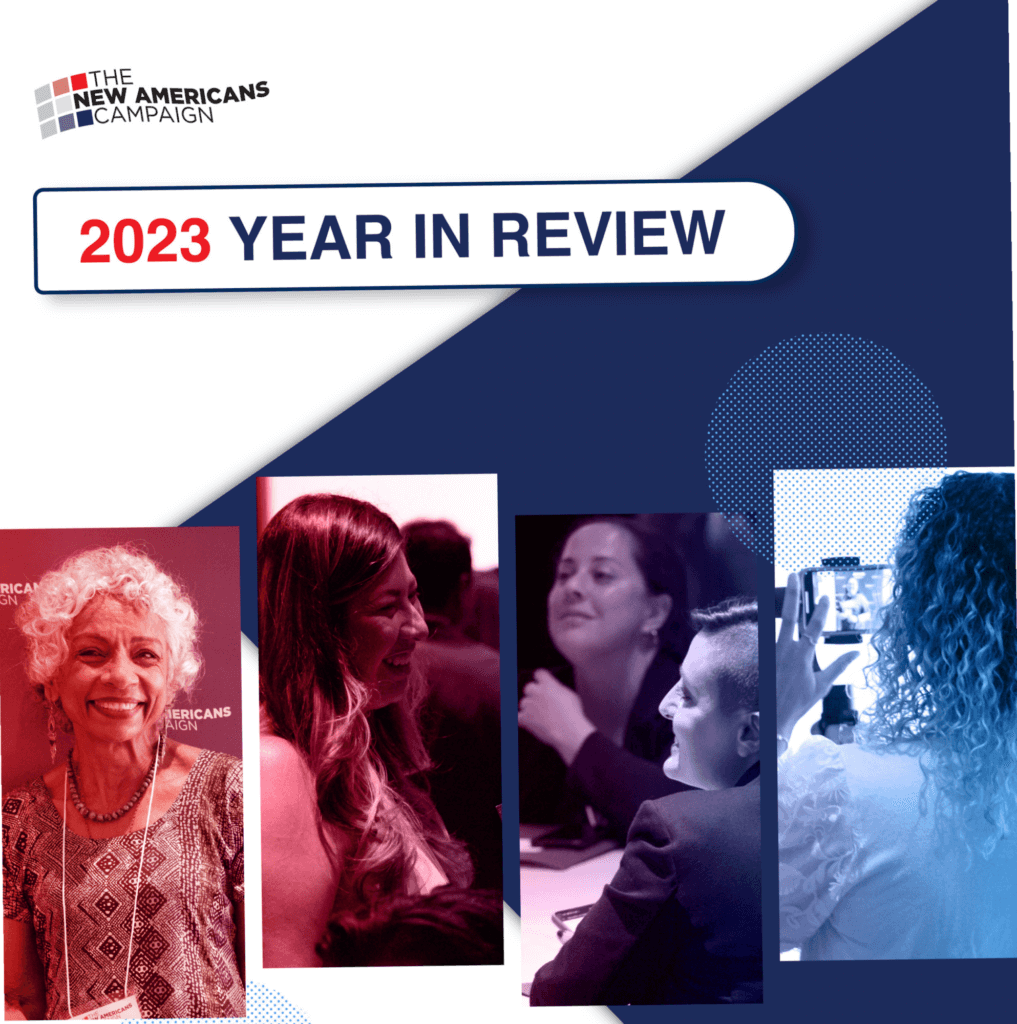Naturalization Policy Update

Explore more
The Biden Harris Administration has begun to remove the unnecessary and hateful barriers to the naturalization process imposed by the previous president. These recent policy decisions align with priorities supported by the New Americans Campaign and advocated by the Naturalization Working Group (NWG) which sent recommendations to members of the Biden Harris transition team. Below is a summary of the progress that has happened since January 20, 2021.
In February, President Biden signed an executive action with the mission to “Restore Faith in Our Legal Immigration System and Promote Integration of New Americans.” The goals include:
- Requiring agencies to conduct a top-to-bottom review of recent regulations, policies, and guidance that have set up barriers to our legal immigration system.
- Eliminating barriers and improving the existing naturalization process, and emphasizing review of the N-400 application, fingerprinting, background and security checks, interviews, civics and English language tests, and the oath of allegiance.
- Substantially reducing the current naturalization processing times.
- Making the naturalization process more accessible to all eligible individuals, including through a potential reduction of the fee and restoration of the fee waiver process.
- Stopping the excessive and inappropriate use of denaturalization.
- Creating an interagency Task Force on New Americans and Naturalization Working Group to develop a national strategy to promote naturalization.
On his first day in office, President Biden sent the U.S. Citizenship Act of 2021 to Congress, as part of his “commitment to modernize our immigration system.”
- The bill would create an “earned roadmap” for undocumented immigrants to become naturalized United States citizens. Essential workers including Dreamers, TPS holders, and agricultural workers would become eligible for green cards right away; other essential workers would have a five-year temporary/prospective immigrant status before becoming eligible, subject to various conditions.
- A United States Citizenship and Integration Foundation would be created to help make U.S. citizenship instruction and naturalization services accessible to low-income and other underserved lawful permanent residents.
On January 29, 2021 USCIS announced it would not increase the citizenship application fee. The fee, which was scheduled to be more than $1,170, will remain $640. USCIS will also continue to grant fee waiver applications for naturalization cases. This “wealth test” for naturalization, which was proposed by the Trump Administration, was the target of several lawsuits, including Immigrant Legal Resource Center, et al v. Chad F. Wolf, et al.
Citizenship Affordability Act: This bill, not yet reintroduced in Congress, would limit the fees charged for naturalization and potentially other benefits and clarify eligibility for fee waivers based on poverty.
New Deal for New Americans Act: This bill would establish the National Office of New Americans, reduce obstacles to United States citizenship, support the integration of immigrants and refugees into the social, cultural, economic, and civic life of our shared Nation, among key provisions.
The 2020 U.S. History and Civics Test: The new and unfair U.S. History and Civics test that the Trump Administration implemented on its way out of office was revoked, and the 2008 version was reinstated.
These are
all good first steps. We’ve identified a list of over two dozen additional
actions that should not fall by the wayside. They are important ways to reverse
the harmful policies of the Trump administration and to immediately improve the
opportunities for lawful permanent residents to become U.S. citizens. These
actions include:
- Adopting a nationwide policy of same-day oath ceremonies
- Reducing the backlog of naturalization applications to an average processing time of 4-6 months
- Ending super-vetting, eliminating irrelevant questions outside the scope of the application, and streamlining naturalization applications
- Ending the USCIS practice of re-adjudicating underlying applications
- Ending all referrals from USCIS to Immigration and Customs Enforcement (ICE) or the Department of Justice (DOJ)
- Freezing all criminal and civil denaturalization efforts within USCIS and encouraging DOJ and DHS to freeze such efforts
- Reversing USCIS’ unjust approach to adjudicating disability exceptions to the English and civics tests and the harmful changes to the accompanying Form N-648
The Naturalization Working Group will continue to demand that the Biden Harris Administration be bold on naturalization by taking more executive actions, changing the U.S. Citizenship and Immigration Services (USCIS) culture toward naturalization, and pushing to enact positive laws.



